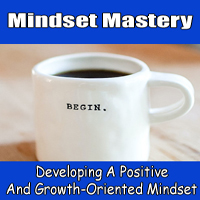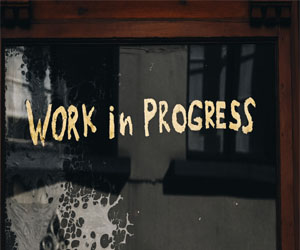


Strategies For Success

In today's fast-paced world, the challenges of modern life have become an intrinsic part of our daily existence. As society continues to evolve, we face an array of complexities ranging from technological advancements to social and environmental concerns. In this article, we will explore the multifaceted challenges of modern life and discuss strategies for effectively navigating these hurdles.
1. Technological Overload
One of the most prominent challenges of modern life is the constant influx of technology. While technological advancements have brought remarkable convenience, they have also introduced the struggle to maintain a healthy balance. The pervasive presence of smartphones, social media, and digital devices can lead to information overload, screen addiction, and reduced face-to-face interaction.
Strategy: To tackle this challenge, individuals can set boundaries for screen time, practice digital detox, and engage in regular offline activities to reconnect with the real world.
2. Work-Life Imbalance
Modern life often blurs the line between work and personal life. With the advent of remote work and the gig economy, individuals find it challenging to switch off from work responsibilities, leading to increased stress and burnout.
Strategy: Establishing clear boundaries between work and personal life, creating designated workspaces, and adhering to a structured schedule can help mitigate the effects of work-life imbalance.
3. Mental Health And Well-Being
The fast pace of modern life can take a toll on mental health and overall well-being. Constant exposure to stress, social pressures, and the expectations of high achievement can lead to anxiety, depression, and burnout.
Strategy: Prioritizing self-care, practicing mindfulness, and seeking professional help when needed are critical strategies to safeguard mental health in the face of modern life's challenges.
4. Environmental Concerns
Issues related to climate change, pollution, and resource depletion pose substantial challenges in the modern world. The consequences of environmental degradation affect not only the planet but also the well-being and survival of future generations.
Strategy: Adopting sustainable practices, supporting environmental initiatives, and reducing personal carbon footprints can contribute to addressing these challenges.
5. Social Isolation
Ironically, the digital age, with its vast array of social networks, has led to increased feelings of social isolation and loneliness. While individuals may have thousands of online friends, they may still feel disconnected from meaningful real-life relationships.
Strategy: Prioritizing in-person connections, fostering deep and meaningful relationships, and participating in community activities can help combat social isolation.
6. Information Overload
The abundance of information available in the digital age can be overwhelming. People are often inundated with news, data, and content, making it challenging to distinguish between credible and misleading information.
Strategy: Developing critical thinking skills, fact-checking information, and curating one's media consumption can help navigate the information overload.
7. Financial Pressures
Rising living costs, student loans, and economic uncertainties have created financial stress for many individuals. The pursuit of a comfortable lifestyle and financial security can be a formidable challenge.
Strategy: Financial planning, budgeting, and seeking professional financial advice can help individuals better manage their financial situation.
The challenges of modern life are complex and multifaceted, but they are not insurmountable. By adopting strategic approaches and a proactive mindset, individuals can navigate these challenges effectively. Recognizing the need for balance, self-care, and a strong support system is essential in facing the demands of the modern world. It is by acknowledging these challenges and actively seeking solutions that individuals can find the path to a more balanced, fulfilling, and successful life in the 21st century.
Confronting Self-Doubt
 The Perfectionist Devil
The Perfectionist Devil
One of the primary inner demons of impostor syndrome is the Perfectionist Devil. This relentless voice inside your head demands flawlessness in every aspect of your life. It convinces you that any mistake or imperfection is a sign of incompetence, fostering the fear of being exposed as a fraud. The Perfectionist Devil constantly sets unattainable standards, leaving you in a perpetual state of self-critique.
The Comparison Fiend
Another formidable inner demon is the Comparison Fiend. It prompts you to constantly compare yourself to others, magnifying their accomplishments while diminishing your own. This toxic habit leads to the unwarranted conclusion that you are not as talented or capable as those around you. The Comparison Fiend makes you believe that your achievements are mere flukes in the shadow of others' excellence.
The Self-Devaluation Monster
The Self-Devaluation Monster thrives on undervaluing your own capabilities and accomplishments. It convinces you that your successes are merely the result of luck, timing, or external factors, rather than your own efforts and abilities. This demon erodes your self-worth and makes you feel undeserving of recognition and praise.
The Fear Of Failure Ogre
The Fear of Failure Ogre is an inner demon that paralyzes you with the fear of making mistakes.




The Key To Overcoming Procrastination
 Understanding The Nature Of Procrastination: Procrastination is often a byproduct of our inclination to choose short-term comfort and instant gratification over the longer-term rewards of completing tasks. It is a habit that can lead to missed opportunities, stress, and unfulfilled potential. To overcome it, one must recognize the need for change and make a firm commitment to act upon it.
Understanding The Nature Of Procrastination: Procrastination is often a byproduct of our inclination to choose short-term comfort and instant gratification over the longer-term rewards of completing tasks. It is a habit that can lead to missed opportunities, stress, and unfulfilled potential. To overcome it, one must recognize the need for change and make a firm commitment to act upon it.
The Role Of Commitment: Commitment to change is the foundation of progress. It is a pledge to oneself to break free from the cycle of procrastination and prioritize tasks effectively. By making this commitment, you empower yourself to take control of your time, set meaningful goals, and turn your aspirations into reality.
Strategies For Embracing Commitment And Overcoming Procrastination:
Set Clear Goals: Commitment to change begins with setting clear, specific, and motivating goals. When you have a compelling vision of what you want to achieve, you are less likely to fall into the trap of procrastination.
Time Management: Effective time management is a critical tool for overcoming procrastination. Create schedules and to-do lists to structure your day, allocate time for specific tasks, and prioritize them based on their importance.
Accountability: Share your goals and progress with a trusted friend, mentor, or accountability partner who can provide guidance and support.
Empowering Your Journey To Self-Worth
 Understanding Inadequacy
Understanding Inadequacy
Inadequacy is a psychological state characterized by a sense of not being good enough or capable. It often leads to negative self-perception and self-doubt, which can hinder various aspects of life, including personal relationships, professional development, and overall well-being. These feelings can manifest in different ways, from low self-esteem to persistent anxiety and self-criticism.
Root Causes Of Inadequacy
Inadequacy often has complex origins that may vary from person to person. Some common factors include:
Early Life Experiences: Childhood experiences, such as parental expectations or experiences of rejection, can significantly impact self-esteem and contribute to feelings of inadequacy.
Social Comparisons: Constantly measuring oneself against others and feeling inferior can be a potent source of inadequacy.
Perfectionism: Striving for an unrealistic standard of perfection can foster feelings of inadequacy when one inevitably falls short.
Failure And Rejection: Past experiences of failure, rejection, or criticism can perpetuate a sense of inadequacy.
Negative Self-Image: A distorted self-image, whether related to body image or self-worth, can exacerbate feelings of inadequacy.
Strategies For Overcoming Inadequacy
Overcoming inadequacy is a personal journey that demands self-awareness, patience, and self-compassion. Here are some strategies to help empower yourself on this journey:
Recognize And Acknowledge: The first step is recognizing your feelings of inadequacy and acknowledging them without judgment. Understand that many individuals experience these emotions.
Challenge Negative Self-Talk: Actively challenge self-critical thoughts and replace them with affirmations that emphasize your strengths and capabilities.
Introverts' Unique Communication Style
 1. Thoughtful And Deliberate: Introverts are known for their thoughtful and deliberate approach to communication. They carefully consider their words and responses, often preferring to think before they speak. This quality ensures that their contributions to conversations are well-thought-out and meaningful.
1. Thoughtful And Deliberate: Introverts are known for their thoughtful and deliberate approach to communication. They carefully consider their words and responses, often preferring to think before they speak. This quality ensures that their contributions to conversations are well-thought-out and meaningful.
2. Active Listening: Introverts excel in the art of active listening. They pay close attention to what others are saying, often engaging in conversations with the intent to understand rather than merely respond. Their attentive listening fosters deeper connections and more profound exchanges.
3. Depth Over Small Talk: Introverts tend to avoid small talk and superficial conversations. Instead, they gravitate toward discussions with substance, delving into meaningful topics that allow for greater understanding and connection. Their preference for depth over breadth is a hallmark of their communication style.
4. Introvert Pause: Introverts sometimes have a brief pause before responding in conversations. This is not a sign of hesitation or disinterest but rather a reflection of their penchant for thoughtful responses. They take this time to process and ensure that their contributions align with their intended message.
The Journey Within Through Solitude
 Solitude is not synonymous with loneliness or isolation; rather, it is a deliberate and purposeful choice to spend time alone, free from external distractions. It is in these quiet moments that we have the opportunity to connect with our inner selves and uncover the wellspring of inner peace that often remains hidden beneath the surface.
Solitude is not synonymous with loneliness or isolation; rather, it is a deliberate and purposeful choice to spend time alone, free from external distractions. It is in these quiet moments that we have the opportunity to connect with our inner selves and uncover the wellspring of inner peace that often remains hidden beneath the surface.
Finding inner peace through solitude begins with the act of slowing down. In a world that glorifies busyness, it can be challenging to pause and embrace the stillness. However, when we create a space for solitude, we allow ourselves to step away from the frantic pace of life, unplug from technology, and escape the constant noise. This simple act of slowing down is the first step towards finding peace within.
Solitude provides the environment for deep self-reflection. As we sit in the silence and listen to our thoughts and feelings without the interference of external influences, we gain insight into our own inner world. We can uncover the sources of stress, anxiety, and restlessness, and begin to address and heal them. This self-awareness is a crucial aspect of finding inner peace.
Moreover, solitude nurtures mindfulness. It encourages us to be fully present in the moment, appreciating the simple pleasures of life.





